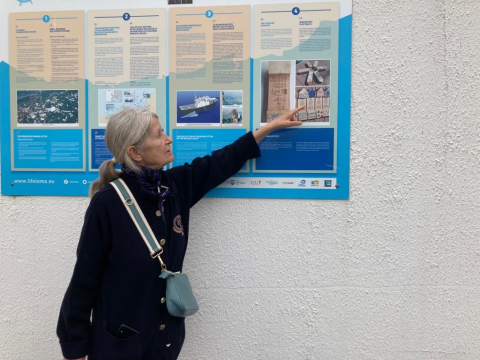In Kazakhstan, Raising Concerns on Women’s Health and Chemical Safety

by Lidia Astanina, Chair, Greenwomen
In 1995, a group of female journalists working in the first environmental newspaper in Kazakhstan established Greenwomen as the country's first ecological analytical non-profit agency focusing on environmental health and justice. I have been leading the organization since then.
In the beginning, the name "Greenwomen" raised questions because the terms "green," "environment," and "ecology" did not immediately become natural in Kazakhstan. We were inspired by the names of other advocacy groups, including Greenpeace, Green Salvation, and Rainbow. We witnessed the formation of a non-governmental sector in Kazakhstan and actively participated in its development.
Over time, we have gained expertise in access to environmental information and public participation in decision-making. Environmental and public health issues are traditionally of concern to women; we are responsible for our children's health and our families' well-being. Thus, emphasizing the role of women and the importance of their engagement in environmental decision-making has always been a critical topic of our publications.
Greenwomen benefits significantly from being part of the IPEN network, carrying out joint projects, participating in negotiations, and shaping the national agenda. Many years of work with IPEN in Eastern Europe, Caucasus and Central Asia, and globally helped Greenwomen grow professionally and significantly raise its capacity and understanding of issues related to chemicals and waste and their impact on the health of women and children. We shared our knowledge with different sectors in Kazakhstan and beyond by explaining the impacts toxic chemicals have on the environment and public health, prioritizing women's and children's health. We have been focusing on POPs and heavy metals, toxic chemicals in consumer products, harms from lead in paint, plastic and mercury pollution, and highly hazardous pesticides, among other concerns.
Greenwomen has been involved in dozens of international and regional awareness-raising and capacity-building projects of which women have been integral. In 2022, we researched and prepared an Overview of the Impacts of Chemicals on Women's Health that was in great demand in Kazakhstan because the topic has never been high on the agenda in the country. The report stresses that women tend to be disproportionately affected by chemicals and waste and women need greater access to participation in decision-making. Yet women are also critical agents of change. The gendered impacts of chemicals are relevant to achieving the Sustainable Development Goals. Thus, the topic of Women and Chemicals deserves more attention at the national and community levels in the country.
We also regularly develop various courses and awareness-raising materials for different target groups on topical environmental issues, for example, how to contribute to the fight against plastic waste, how hazardous pesticides harm the human body and the environment, food and its impact on health, and other topics.
Our work contributes to the development of environmental policy in Kazakhstan. However, more is needed to make a difference. We must also consider the fact that in today's reality, environmental and chemical safety issues are being overshadowed: women's voices are still not being heard, their rights are being infringed, and even what has been achieved in the past is being lost.
But we are not discouraged. We are inspired by the examples of other organizations, especially women's organizations, who, despite all the difficulties, are striving for a future without chemical pollution. We are hopeful that, for example, the new Gender Action Plan to be developed under the new Global Framework on Chemicals adopted in September 2023 will bring new opportunities for women everywhere in the world, including in Kazakhstan. The optimism and desire to act are undiminished among the colleagues we met at the beginning of the process and who joined us later. We are with you, those who will not leave the chosen road and will not give up their ideas and goals.
Lidia Astanina is the Chair of Greenwomen environmental analytical agency based in Almaty, Kazakhstan. She completed her degree in environmental journalism and has participated in various national and international programmes for journalists. She also worked in the first environmental newspaper in Kazakhstan.
